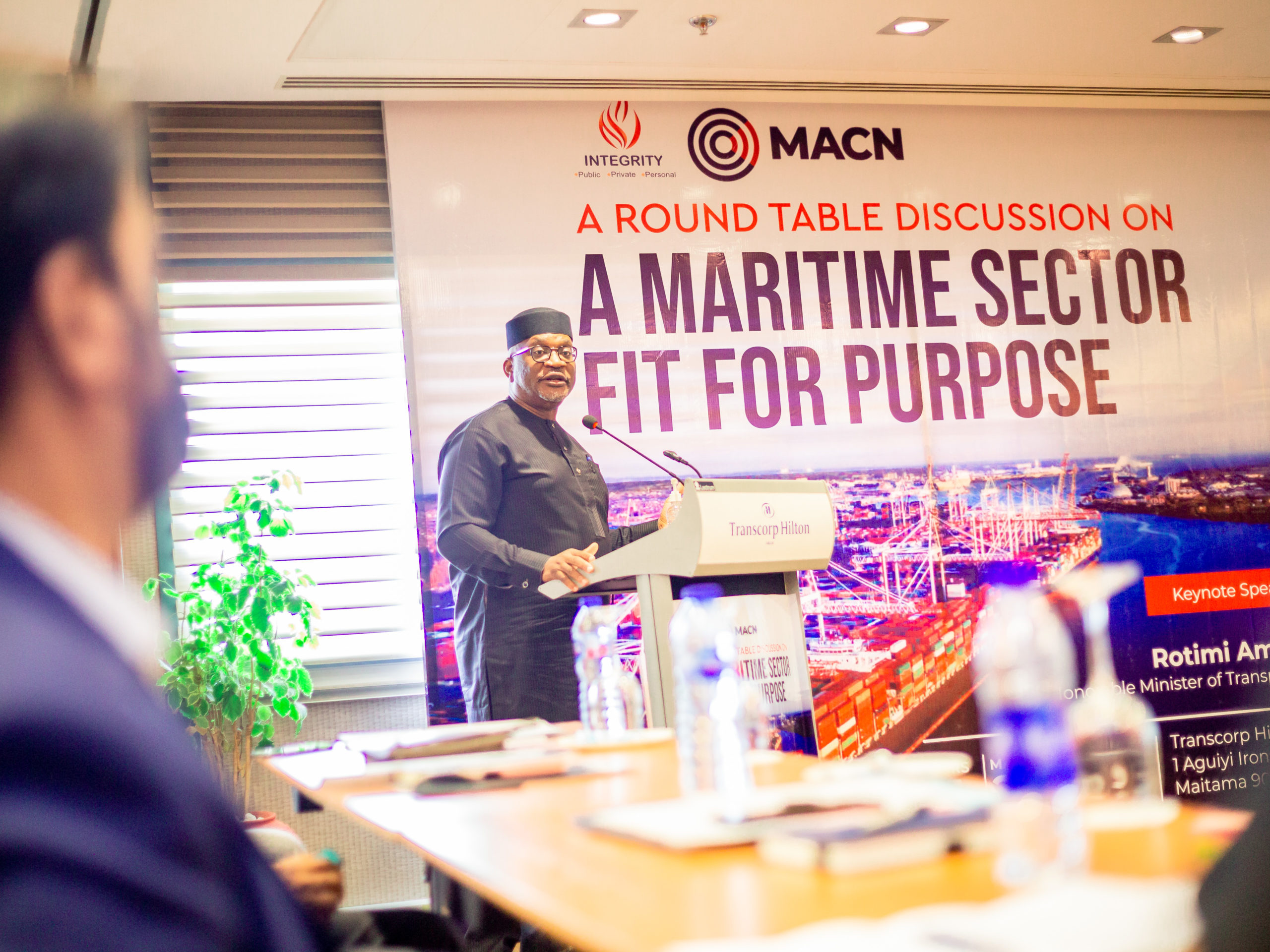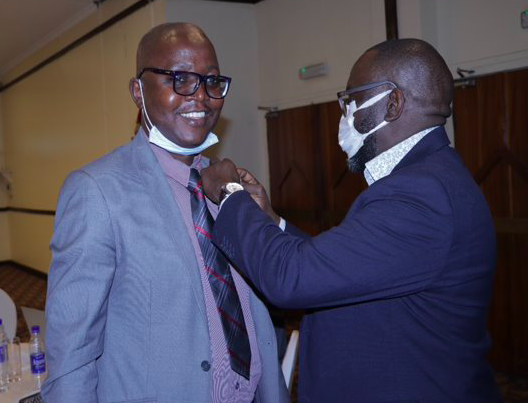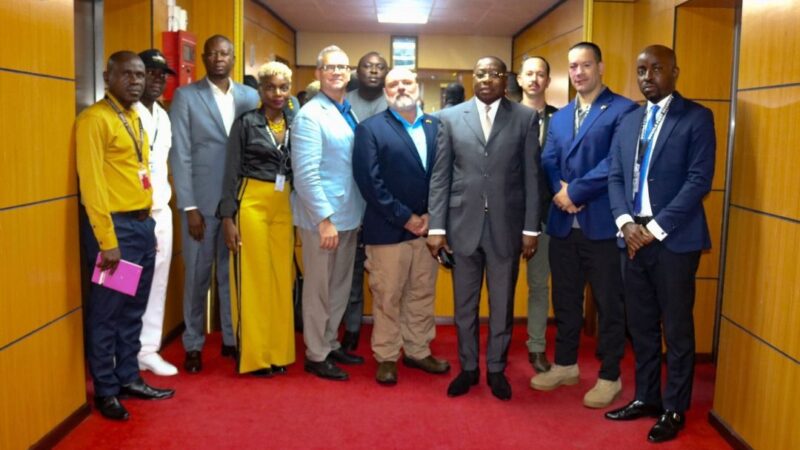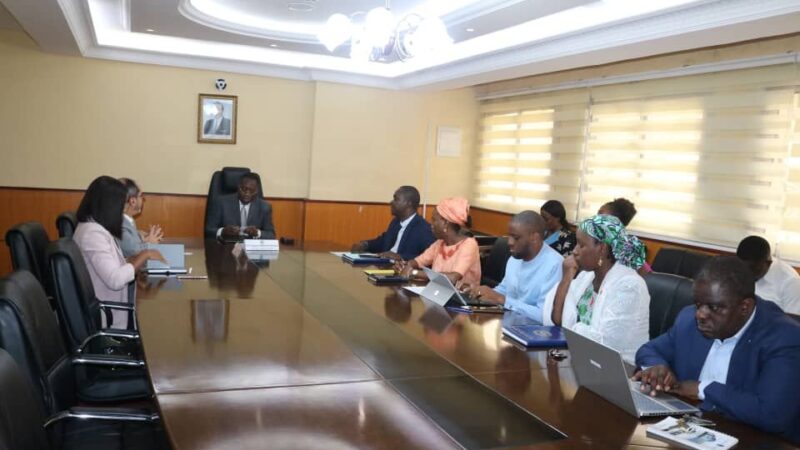CBi and MACN BAAC Initiative

The maritime industry is important to Nigeria’s economy. However, an estimated $7 billion is lost annually due to administrative bottlenecks, poor infrastructure, and delays at Nigerian ports and terminals. These challenges are a direct result of pervasive corruption in the sector.
Since 2012, the Convention on Business Integrity (CBi) and the Maritime Anti-Corruption Network (MACN) have collaborated with government partners on a series of initiatives aimed at strengthening integrity and improving the operating environment in Nigeria’s maritime sector; the project is called the Business Action Against Corruption (BAAC) initiative. CBi is a Nigerian company that seeks to work with people in zones of weak governance to build integrity and resilience into the transactions, systems, and institutions on which they depend for their growth and survival. CBi’s goal is to ensure Nigerians en-masse can sustainably and consistently choose integrity over corruption. MACN is a maritime commercial network that aims to create a corruption-free maritime industry across the globe. Over the years, the CBi/MACN partnership has worked to enable port users to demand, track, and ensure greater compliance with policies and laws at Nigerian ports and terminals. Equally, it has helped the Federal Government of Nigeria (FGN) to strengthen its capability to establish compliance systems and collaborate with the private sector and civil society through collective action to implement initiatives that lead to cultural shifts in behaviour and actions necessary to improve compliance and efficiency at ports and terminals. These efforts are intended to directly improve trade flows in and out of Nigeria and support socio-economic development.
The BAAC project was created to address:
- The high risk process associated with cargo clearance.
- Circumstances of excessive delays to import/export processes.
- Rent seeking and corrupt demands by port officials.
- Red tape, regulatory inconsistencies and duplication of functions among a myriad of government agencies.
- Illegal charges leading to high costs of business operations.
The Approach:
The focus of the BAAC initiative is to use collective action to strengthen good governance, reduce corruption, and improve the investment climate in the maritime sector. CBi and MACN achieve this by working within the industry to strengthen self-regulation of business, its compliance with government regulation, stakeholder activism, and a public vigilance over the arrangement.
Key Strands of the Approach:
- The project has established a Grievance Reporting Mechanism (GRM) – User Experience Diary – to enable port users to report challenges and corrupt demands, track progress, and ensure greater compliance with standard operating procedures (SOPs) by government (port) agencies as it relates to vessel clearance.
- The project has supported the Federal Government, led by the Nigerian Shippers Council (NSC) in partnership with the Independent Corrupt Practices and other Related Offenses Commission (ICPC), Department of State Services (DSS) and Nigerian Ports Authority (NPA), to establish a Port Standing Task Team (PSTT). The PSTT has since its inception carried out sting operations intended to enforce compliance standards and anti-corruption policies.
- Finally, the project established an Integrity Alliance, operational in port locations of Lagos, Cross River and Rivers States, as a private sector-led instrument for promoting self-regulation and compliance with government Codes and regulations and for collaborating with government to respond to regulatory issues and challenges that hinder accountability and operational efficiency at Nigeria’s ports and terminals. The leadership of the Integrity Alliance is key to collecting evidence of systemic corruption challenges related to cargo clearance, enabling the public sector to improve compliance and consequence management based on evidence, and enabling civil society to hold the public-private dialogue partners mutually accountable.

Achievements:
Port User Engagements:
CBi and MACN have organized a series of events and reached close to 400 port users. Through these events, the project has raised awareness about the Grievance Reporting Mechanism (GRM) and Standard Operating Procedures (SOPs) on Port Processes. As a result of these efforts, there has been an uptick in the use of the GRM to resolve corruption challenges and more companies are integrating the government-defined SOPs into their operations for ease of doing business.
Stakeholder Strengthening:
In 2021, CBi and MACN established an Integrity Alliance with over 120 port users and elected a Steering Committee with senior representatives from the industry in Lagos, Cross River and Rivers States. Membership is based on a clear set of expectations (Code of Conduct), urging members to report corruption and conduct business with integrity.
Capacity Building:
CBi and MACN developed a training module and delivered capacity building workshops on Leadership, Ethics and Anti Corrupt Practices for over 100 government officials from the Nigerian Immigration Service (NIS).
Improving Policy & Structure
As a response to CBi and MACN’s request in 2020, the office of the President of the Federal Republic of Nigeria empowered the Nigerian Shippers Council (NSC) to govern SOP compliance in ports – now officially incorporated into the Nigerian Ports Process Manual (NPPM). NSC now has a mandate to enforce compliance and is already coordinating training to improve consequence management at various ports.
Equally, CBi supported the drafting of a Consequence Management framework for the National Policy on Ethics and Integrity Policy (NEIP) launched by the ICPC.
Civil Society Partnership
The project has also secured a collaboration with civil society through the Center for International Private Enterprise (CiPE) and the National Seafarer’s Welfare Board and Seafarers Assistance Network to deepen the benefits of civil society engagement and impact on the project, and ensure sustainability of outcomes.
Operational Toolkits
CBi and MACN have successfully launched an anti-corruption HelpDesk (User Experience Diary) to support businesses involved in vessel and cargo clearance at ports and terminals in Nigeria. The HelpDesk enables companies to report any vessel and cargo clearance issue. Each report is assigned a trackable case number, allowing for monitoring of progress with a dedicated CBi Helpdesk Manager. CBi works with the NSC to resolve cases through dialogue with relevant government authorities and other stakeholders involved in a complaint or issue. Since the HelpDesk’s inception in 2019, the number of reported anonymous incidents has decreased from a total of 266 reported in 2019, to 129 cases in 2020, and 84 cases in 2021. By late March 2022, only 10 incidents had been reported. These decreasing figures are not a result of COVID-19 travel restrictions, for the number of annual port calls to Nigerian ports did not decrease from 2020 to 2022. This indicates the decrease represents solely a lessening number of reported incidences of corrupt demands by port officials. Moreover, as of 2021, there is a 93% resolution rate for incidents reported; in terms of direct costs for vessels using Nigerian ports, the delay has diminished from 7-10 days to 1-4 hours which has lowered the operational costs due to delays from estimated $150,000 to $20,000. In brief, local HelpDesk provides instant assistance for vessels facing corrupt demands by port officials, and has thereby empowered the private sector not only to say no to corruption but also to document the incidents, escalate to the appropriate authorities immediately, and receive a resolution which has reduced delays in ports. Finally, to facilitate the use and navigation of SOPs for companies, CBi and MACN developed an SOP Toolkit that allows companies to identify procedures and requirements that apply during clearance of cargo at Ports and Terminals.

Looking Ahead
Despite these achievements, CBi and MACN continue to push for ongoing reform to the Nigerian maritime sector through the institutionalization of tools and procedures to curb corruption. In a practical sense, CBi and MACN have now set their sights on ensuring compliance to port agency Standard Operational Procedures (SOPs), continuing to bring both private and public sectors together through collective action to create a sustainable system that values integrity, transparency, accountability, and operational efficiency for all port users. The embedded Compliance Functions at each port agency will be a key accountability mechanism unique to the to the Nigerian context for ensuring sustainability. If such sustainability is achieved, the Nigerian maritime industry will not only be able to recoup the $7 billion lost annually, but according to the Nigerian Shippers’ Council (NSC), the shipping industry could benefit from an increased revenue of $17 billion and four million jobs created over the next five years. The benefit of the affirmed dignity, security, and trust of port users is invaluable.



